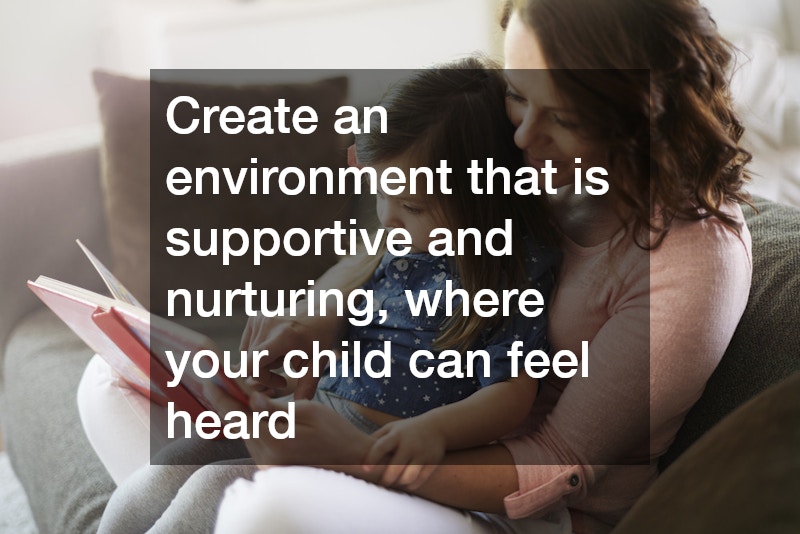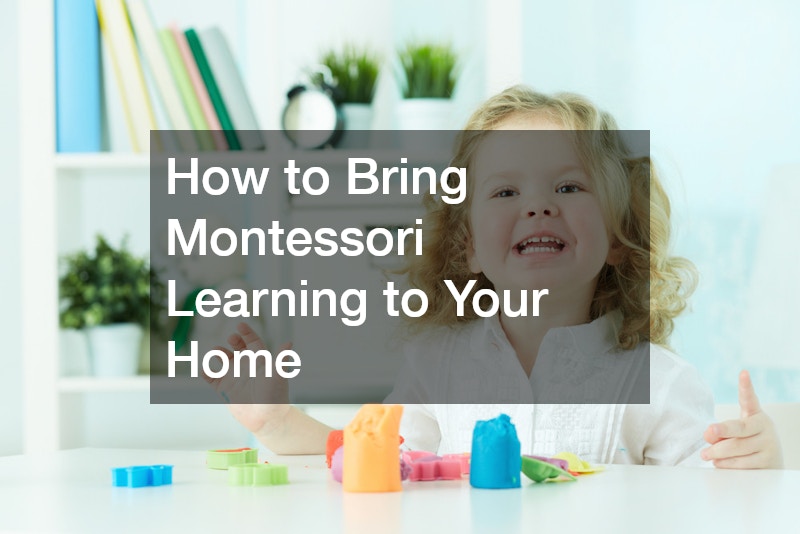Using the Montessori method at home can encourage independence, curiosity, and a love of learning in your child. By creating a Montessori environment at home, you can help your child develop important skills and abilities.
The Montessori method at home is a child-centered, holistic approach to education. It focuses on each child’s individual needs and interests. It can be rewarding for you and your child to implement Montessori principles in the home. We’ll walk you through the main aspects of the Montessori method and give practical tips for incorporating it into your everyday routine, whether or not your child attends Montessori school.
Understanding the Montessori Approach
The Montessori method at home is based upon the educational philosophy created by Dr. Maria Montessori, an Italian educator and physician. She believed in creating an environment where children could learn independently, with freedom, within limits, and through a hands-on method.
The Montessori method is based on the principle that children are naturally curious. The Montessori approach believes that children are naturally curious and eager to learn.
The Montessori method also emphasizes respecting the child and recognizing his or her unique abilities, interests, and pace of growth. It encourages the child to be active in their own learning, encouraging a sense of responsibility and self-motivation.
Designing a Montessori Learning Environment

The first step to implementing Montessori for your child is creating a learning space inspired by Montessori in your home. Create an area dedicated to your child’s learning activities. Include child-sized furniture and shelves with materials. Also, leave space for them to move around. Hire an interior painter to create a space with fun colors.
Choose Montessori materials which focus on practical life lessons, sensory exploration, language and math concepts. The materials you choose should be engaging, age-appropriate and easily accessible for your child. This will allow them to learn and explore at their own pace.
Set up a daily schedule that allows for time for quiet reflection, independent play, group exploration, and activities. A Montessori environment is characterized by consistency and structure, which helps children to feel confident and secure in their daily activities.
Fostering Independence and Self-Reliance
The Montessori method at home is fundamentally based on teaching self-care. Encourage your child’s independence by encouraging them to dress themselves, make snacks on your granite counter, and clean their own mess.
Give your child the freedom to choose and make decisions in their daily lives. Give them the opportunity to select their own activities, choose materials, and plan their days. This will help them develop critical thinking and personal responsibility.
Encourage your child to take on household chores, like setting the table or watering plants for your family’s lawn-care routine. You can also get them involved in sorting the laundry. Children who are involved in meaningful activities develop a strong sense of contribution and purpose.
Engaging Montessori Activities for Preschoolers
Practical life activities such as sorting and pouring help develop fine motor skills and hand-eye coordination. They also improve concentration. These activities teach children important life skills such as problem-solving, organization, and independence.
Sensory activities are aimed at stimulating the senses and exploring the physical environment. Children can develop their sensory awareness and observation skills by doing activities like matching textures, identifying scents, or categorizing sounds.
In a Montessori setting, language and math activities are designed to develop literacy, numeracy and critical thinking. Children learn through engaging materials and hands-on activities to recognize sounds, letters, and numbers. This is a solid foundation for future learning.
Supporting Your Child’s Learning Journey
Follow and observe your child’s strengths, interests and challenges in order to customize their learning experience. You can tailor activities and materials to meet your child’s individual needs by paying attention and observing their preferences.
Explore and discover in different environments. For example, go on nature walks, visit museums, or take your child to a community event. Encourage your child’s curiosity by encouraging them to make observations and ask questions.
Model a positive attitude toward education, creativity, and problem-solving. Read books with your child, engage in educational activities and celebrate their achievements. This will instill in them a passion for lifelong learning and growth.
Encouraging Socialization and Emotional Development
Encourage peer interaction by organizing playdates or attending playgroups. Joining social clubs for young kids is also a great way to encourage it. Encourage your child to communicate, collaborate, and socialize with peers. This will help develop their social skills and emotional IQ.
Model positive communication, active listening, and problem-solving techniques to teach your child how to resolve conflicts. Help your child learn to navigate social situations and manage disagreements. Encourage them to negotiate with others and build their capacity for respect, empathy, and compromise.
Discussing emotions, perspectives and diversity with your children will help to promote empathy and respect for others. Encourage your child to show compassion and consideration towards others by teaching them about tolerance and kindness.
Evaluating Progress and Growth
Use observation to gauge your child’s development and growth in a Montessori environment. Pay attention to the child’s engagement, concentration, and problem-solving abilities during activities.
Keep a journal or take photos of your child’s work to reflect and document their learning journey. These records should be reviewed regularly to celebrate your child’s achievements and set new learning goals.
Communication with educators, experts, and other caregivers will help you gain insight into your child’s educational progress and get feedback. Attend parent-teacher conferences and ask for guidance from Montessori experts.
Overcoming Challenges in Montessori Implementation
When implementing the Montessori method at home, it can be difficult to maintain consistency and structure. While following a Montessori schedule, it can be difficult to balance household duties, childcare, and work.
A second challenge is letting go of the control and allowing a child to take charge in their educational journey. While it can be tempting for you to direct or correct the activities of your child, it is important to respect their independence and trust their abilities.
It can be difficult to find a balance when combining the Montessori method with other parenting styles and educational philosophies. To create a harmonious environment for your child, it’s important to align your goals, values and strategies.
Infusing Montessori Values into Daily Life

Incorporate Montessori values into your daily routines such as family activities, meal preparation, and household chores. Encourage your child to take on meaningful tasks, encourage independence, and show respect for the environment.
Respect your child’s efforts by valuing and appreciating their contributions and listening to their thoughts. Create an environment that is supportive and nurturing, where your child can feel heard, seen, and appreciated. This will foster their sense of self-esteem, confidence, and belonging.
Encourage your family to be eco-friendly by gardening and exploring the outdoors. Teach your children the importance of conservation, sustainability, and respect for our planet. Instill a sense of responsibility and stewardship of the environment.
Resources for Montessori-Inspired Parenting
Books such as “The Absorbent Mind” by Maria Montessori, “Montessori from the Start” by Paula Polk Lillard, and “Montessori Today” by Paula Polk Lillard offer practical advice and valuable insight into implementing Montessori principles in the home.
Parents who want to learn more about the Montessori method can find a wealth of information in online courses and workshops. Montessori AMI, MontessoriGuide, and other platforms offer educational material and online training for educators and parents.
Local Montessori schools are a great source of information, support and opportunities to network for parents who are interested in the Montessori method. Join parent meetings and community events, connect with other parents who share your interests, and learn more about the Montessori approach.
Enhancing Emotional Intelligence Through Montessori
The Montessori approach in the home aims to promote emotional intelligence, self-regulation, and positive social interaction among young children. It encourages children to develop emotional intelligence, resilience, and emotional well-being by providing a nurturing and supportive environment that respects their emotions and needs.
The Montessori method emphasizes the importance of self-regulation. Parents can help their children develop essential skills such as self-control, conflict management, and personal growth by teaching them how to control their emotions, impulses, and behaviors constructively.
The Montessori method includes teaching conflict resolution techniques. Parents can help their children learn how to navigate social interactions and manage disagreements by modeling positive communication and active listening.
Transitioning from Traditional Preschool to Montessori
You can introduce Montessori principles to your child’s learning at home if they are already in a pre-k classroom. Create a Montessori-inspired environment in your home, use age-appropriate activities and materials, and integrate Montessori values into daily routines.
Work with educators, teachers, and caregivers at the early learning childcare center so that your child can align their learning experiences from school and home. Discuss your interest in Montessori, how you can integrate Montessori principles into your child’s routines, and ask for guidance on ways to support your child’s holistic development in and outside of the classroom.
Implement Montessori at your home to supplement the educational journey of your child in a traditional school or daycare. You can help your child develop cognitively, physically, and emotionally by providing a holistic and balanced approach to learning.
Connecting with the Montessori Community
Joining Montessori parent groups such as Montessori Dads or Montessori Moms can help you build a network of parents who share your values. Connect with other parents, exchange resources and ideas, and connect with other families.
Online and in person, attending Montessori conferences and workshops offers a valuable opportunity to learn from educators and researchers who are experts in the field. Attend lectures, discussions and hands-on workshops to learn more about the Montessori method and meet other members of your community.
Engaging Montessori educators and experts, such as school administrators and child development specialists at a private school in your area, can provide you with personalized support and guidance for implementing the Montessori method at home. Ask questions, seek advice, and work with professionals to improve your child’s education and personal development.
The Montessori method can be implemented at home to help your preschooler learn and develop in a holistic, child-centered way. You can help your child succeed and thrive in the early years by creating an environment that is Montessori-inspired, encouraging independence, nurturing social skills and promoting emotional wellbeing.
Adopt the key principles of Montessori education, including respect for the child and freedom within limits. Create a stimulating and nurturing environment that fosters curiosity, creativity, and a passion for learning. Keep in touch with the Montessori community. Seek resources and support. Continue to improve your knowledge about the Montessori approach.
The Montessori method at home is a great way to enrich your child’s education, whether you are a parent who stays at home, a parent with a busy schedule, or someone looking to care for your child.
